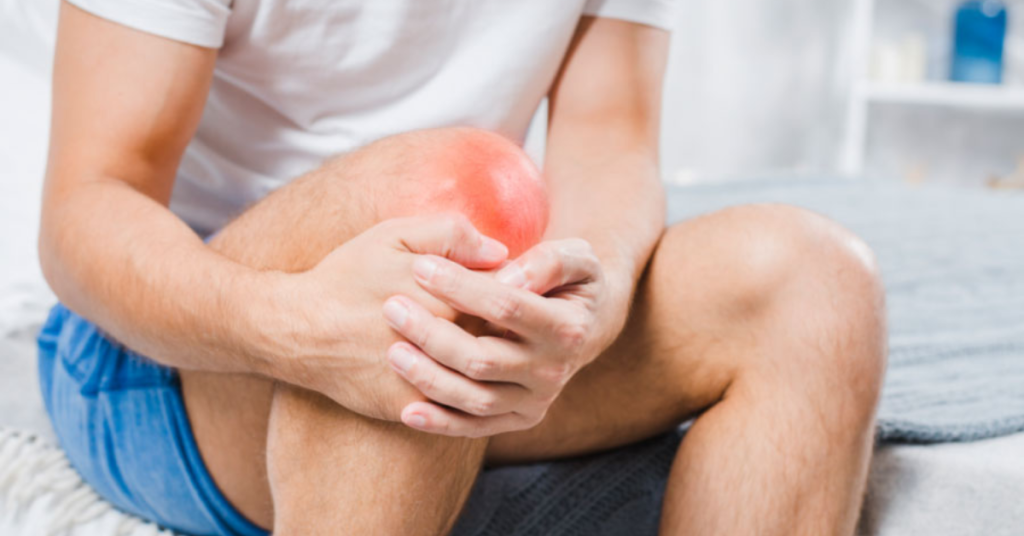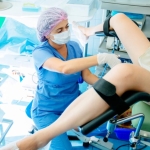Joint pain can cause discomfort, pain, or inflammation in any part of the joint, including the ligaments, cartilage, tendons, bone, or muscles. Joint pain can be quite mild, causing soreness after specific activities, or it can be more severe, making it difficult to bear weight on the joint or limiting its movement. Our primary care physicians provide an effective treatment and pain relief for joint pain.
What Causes Joint Pain?
Many different types of disease can cause joint pain, or it could be due to an injury affecting the joint, tendons, ligaments, cartilage, and bones. Autoimmune diseases like lupus and rheumatoid arthritis can cause joint pain. When the joint is inflamed, it can cause arthritis, and joint pain may be due to infection, for example, Lyme disease. Rarely, joint pain may be caused by a tumor.
When to See a Physician in NYC for Joint Pain?
Joint pain isn’t usually an emergency, but it’s worth making an appointment to see primary care doctors NYC specialists if your joint pain is accompanied by swelling, tenderness and warmth around the joint, and redness, or if the pain has persisted for a week or more. We can arrange for a medical evaluation.
Our primary care doctors and physicians will discuss your symptoms and will want to know your actions before the joint pain began. Discussing conditions that may aggravate or relieve the degree of your pain is also important. After examining the joint, we may recommend other tests, including blood tests, x-rays, or an MRI. You should see a primary care doctor immediately if the pain is intense or you notice a sudden swelling, you cannot use the joint or the joint looks deformed.
Joint Pain Treatment
The treatment recommended aims to address the underlying cause of the problem. If your joint pain is due to injury, initial treatment may involve rest, cold packs to reduce swelling and anti-inflammatory medications.
If needed, we can provide painkillers, but they may not be necessary. Afterward, physical therapy can gradually rehabilitate the joint. If the joint pain is arthritis related, we may prescribe anti-inflammatory medications and other medications that can help to treat arthritis.
You can also manage mild joint pain at home. Try using over-the-counter pain relievers like ibuprofen or naproxen sodium. Avoid moving your joint in any way that could worsen the pain. Apply an ice pack to the joint for 15 to 20 minutes for a few times each day, and you can even use a package of frozen peas. Heat can also be useful, so use a heating pad or take a warm shower or soak in the bathtub to relax muscles and increase circulation.
Knee Joint Pain
Frequently, joint pain can affect the knees and may be the result of an injury, torn cartilage or a ruptured ligament. Infections, arthritis, and gout can also cause knee joint pain. Often it’s possible to treat mild knee joint pain with self-care, and knee braces and physical therapy can also be useful. Other times, surgery might be required.
Diagnosing Knee Joint Problems
If you do have knee joint pain, our physician can evaluate the joint during a physical exam. They will inspect the joint for signs of bruising, warmth and tenderness, and swelling. The doctor will also want to see how well you can move your leg and will evaluate the structures in your knee. It’s possible they may suggest diagnostic tests, including a CT scan, x-ray, ultrasound, or MRI.
These types of tests can provide valuable information about the soft tissues and bones and allow the primary care doctor to test for specific problems. Sometimes a blood test may be necessary where we remove a small amount of fluid from the knee joint, and this can be useful if the joint is infected or inflamed.
Knee Joint Pain Treatment in Midtown NYC and New York’s Upper East Side
The treatment prescribed by your local physicians or best internal medicine doctors NYC will depend on the cause of your knee pain.
Treatment options for joint pain may include:
Medications
Sometimes medications can help to relieve pain and will treat the underlying cause, for example, gout or rheumatoid arthritis.
Physical Therapy
Sometimes knee joint pain treatment may involve physical therapy as strengthening the muscles around your knee will help to stabilize it. If you play a lot of sports or are physically active, you may benefit from specific exercises to correct movements that could be aggravating your knees. It can also be helpful to do exercises to improve balance and flexibility.
Injections
Injecting medication directly into the joint can be useful in knee joint pain treatment. Corticosteroid injections can help to relieve symptoms of arthritis, and the pain relief may last several months. However, injections aren’t always effective. Hyaluronic acid is a substance that lubricates the joints, and which can improve mobility and ease joint pain.
Platelet-rich plasma contains growth factors that can reduce inflammation, so the joint can heal more easily. This type of injection can be useful for knee joint pain treatment where a torn tendon or sprain causes the pain.
Self-care remedies for knee joint pain are the same as for any joint pain, although it may also be helpful to elevate the knee to reduce swelling.
Resource: https://www.manhattanprimarycaredoctorsnyc.com/joint-pain-treatment-nyc-best-joint-specialists/



